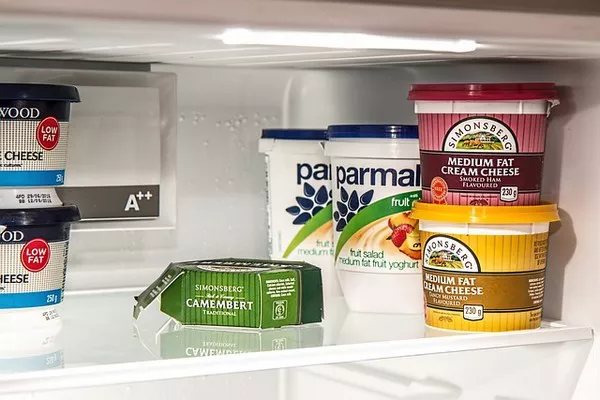Refrigeration systems are pivotal in modern society, finding applications in residential, commercial, and industrial sectors. At the heart of these systems lies a crucial component—the evaporator. This article delves into the purpose, functioning, and importance of the evaporator within refrigeration systems, providing a comprehensive understanding for both industry professionals and enthusiasts.
Understanding the Refrigeration Cycle
Before exploring the specifics of the evaporator, it’s essential to grasp the refrigeration cycle’s basics. The refrigeration cycle operates on the principles of thermodynamics to transfer heat from one area to another, typically from an enclosed space to the external environment. This cycle involves four primary components:
- Compressor: Compresses the refrigerant, raising its pressure and temperature.
- Condenser: Releases heat from the refrigerant to the surroundings, causing the refrigerant to condense into a liquid.
- Expansion Valve: Reduces the pressure of the liquid refrigerant, cooling it down before it enters the evaporator.
- Evaporator: Absorbs heat from the environment, causing the refrigerant to evaporate back into a gas.
Among these components, the evaporator plays a critical role in the cooling process.
The Role of the Evaporator
The evaporator is where the actual cooling effect in a refrigeration system occurs. Its primary purpose is to absorb heat from the environment that needs to be cooled, such as the interior of a refrigerator or the air in an air conditioning system. This process involves the refrigerant, which enters the evaporator as a low-pressure, low-temperature liquid and exits as a low-pressure, low-temperature gas.
Heat Absorption and Phase Change
The evaporator functions based on the principle of heat absorption during the phase change of the refrigerant from liquid to gas. When the cold refrigerant flows through the evaporator coils, it absorbs heat from the surrounding environment. This heat causes the refrigerant to evaporate, changing from a liquid to a vapor. The phase change occurs at a constant temperature and requires a substantial amount of energy, known as latent heat. This absorption of latent heat is what cools the surrounding air or substance.
Types of Evaporators
Evaporators come in various designs and configurations, tailored to specific applications and performance requirements. Some common types include:
Bare Tube Evaporators: These are simple and economical, typically used in small refrigeration systems.
Plate Type Evaporators: These consist of plates with refrigerant flowing inside, providing a large surface area for heat exchange.
Finned Tube Evaporators: Equipped with fins to increase the surface area, these are widely used in air conditioning systems.
Shell and Tube Evaporators: Common in industrial applications, where refrigerant flows through tubes surrounded by the substance being cooled.
Each type has its advantages and is selected based on factors like efficiency, cost, and specific application needs.
Efficiency and Performance
The efficiency and performance of the evaporator are critical to the overall effectiveness of the refrigeration system. Several factors influence the evaporator’s performance:
Heat Transfer Coefficient: A higher heat transfer coefficient ensures efficient heat absorption. This is influenced by the materials used, design, and surface area of the evaporator.
Refrigerant Flow Rate: The flow rate of the refrigerant must be optimized to ensure adequate heat absorption without causing excessive pressure drops.
Airflow Rate: In air-cooled evaporators, the rate of airflow over the evaporator coils impacts the rate of heat transfer.
Frost Formation: In some applications, frost formation on the evaporator coils can hinder heat transfer. Regular defrost cycles are essential to maintain efficiency.
Impact on Refrigeration System Efficiency
The evaporator’s performance directly impacts the refrigeration system’s overall efficiency and energy consumption. An efficient evaporator ensures that the system can achieve the desired cooling effect with minimal energy input. Conversely, a poorly performing evaporator can lead to increased energy consumption and higher operational costs.
To optimize the evaporator’s performance, regular maintenance is crucial. This includes cleaning the coils, ensuring proper refrigerant levels, and inspecting for any blockages or leaks. Advances in evaporator technology, such as the use of microchannel heat exchangers, have further enhanced efficiency by providing higher heat transfer rates and reduced refrigerant charge.
Applications of Evaporators
The versatility of evaporators allows their use in a wide range of applications across various industries:
Residential Refrigeration: In household refrigerators and freezers, evaporators maintain the low temperatures required for food preservation.
Commercial Refrigeration: In supermarkets and convenience stores, evaporators are integral to display cases, walk-in coolers, and freezers.
Industrial Refrigeration: Large-scale refrigeration systems in food processing plants, chemical industries, and cold storage facilities rely on robust evaporators to maintain required temperatures.
HVAC Systems: Air conditioning units in residential, commercial, and automotive applications use evaporators to cool the air.
Innovations and Future Trends
The refrigeration industry continues to evolve with advancements in technology and materials. Innovations in evaporator design and materials aim to enhance efficiency, reduce environmental impact, and improve system reliability. Some emerging trends include:
Microchannel Heat Exchangers: These provide high heat transfer efficiency with compact designs, reducing refrigerant charge and material usage.
Variable Speed Compressors: Coupled with advanced evaporator controls, these compressors optimize refrigerant flow, enhancing overall system efficiency.
Natural Refrigerants: The shift towards environmentally friendly refrigerants, such as CO2 and hydrocarbons, necessitates advancements in evaporator design to accommodate their unique properties.
Smart Controls: Integration of IoT and smart control systems allows for real-time monitoring and optimization of evaporator performance, reducing energy consumption and improving reliability.
See Also 3 TYPES OF REFRIGERATION SYSTEMS
Conclusion
The evaporator is an indispensable component of refrigeration systems, responsible for the crucial task of heat absorption and ensuring the effective cooling of environments and substances. Understanding its function, types, and impact on system efficiency highlights the importance of regular maintenance and advancements in technology to optimize performance. As the industry progresses towards more sustainable and efficient solutions, the role of the evaporator will continue to evolve, driving innovations that benefit both the environment and end-users. Through continuous improvement and adaptation, evaporators will remain at the forefront of refrigeration technology, ensuring that the world stays cool, comfortable, and efficient.

